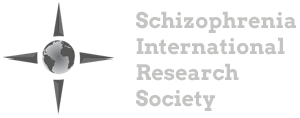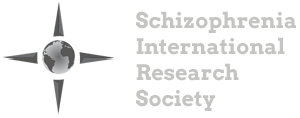-
Views
-
Cite
Cite
Leah Rubin, Siyi Li, Li Yao, Sarah K. Keedy, James Reilly, S. Kristian Hill, Jeffrey Bishop, Sue Carter, Hossein Pournajafi-Nazarloo, Lauren Drogos, Elliot Gershon, Godfrey D. Pearlson, Carol A. Tamminga, Brett Clementz, Matcheri S. Keshavan, Su Lui, John Sweeney, 92. Peripheral Oxytocin and Vasopressin Modulates Regional Brain Activity Differently in Men and Women With Schizophrenia, Schizophrenia Bulletin, Volume 43, Issue suppl_1, March 2017, Page S50, https://doi.org/10.1093/schbul/sbx021.131
Close - Share Icon Share
Abstract
Background: Oxytocin (OT) and arginine vasopressin (AVP) exert sexually dimorphic effects on cognition and emotion processing in healthy individuals. Abnormalities in these neuroendocrine systems are observed in schizophrenia and may contribute to deficits in cognition and emotion processing in a sex-dependent manner. Here we examined sex-dependent hormone associations with resting brain activity and their clinical associations in schizophrenia patients relative to healthy controls.
Methods: OT and AVP serum concentrations were assayed in 35 individuals with schizophrenia (12 women and 23 men) and 60 healthy individuals (36 women and 24 men) from the Chicago BSNIP study. Regional cerebral function was assessed with resting state fMRI by measuring the amplitude of low-frequency fluctuations (ALFF) that are believed to reflect spontaneous neuronal activity during rest.
Results: AVP but not OT levels were lower in schizophrenia versus controls (P = .01). In women, higher OT levels were associated with higher ALFF in frontal and cerebellar cortices in patients (Ps < .05) versus controls. Higher AVP levels were also associated with lower ALFF in the superior temporal gyrus, anterior cingulate, and cerebellar cortex in patients (Ps < .05) versus controls. In men, higher OT levels were associated with higher ALFF in the posterior cingulate and higher AVP levels were associated with higher ALFF in the frontal cortex in patients (Ps < .05) versus controls. Furthermore, higher OT levels were associated with higher ALFF in the frontal cortex and lower ALFF in the thalamus in controls (Ps < .05) versus patients. In female patients, higher ALFF in frontal and cerebellar cortices were associated with poorer facial emotion recognition and higher ALFF in the frontal cortex was associated with poorer verbal fluency (Ps < .05). In male patients, higher ALFF in the thalamus was associated with poorer emotion recognition, verbal learning, and processing speed in male patients (Ps < .05), and higher ALFF in the posterior cingulate was associated with poorer verbal fluency (P < .05).
Conclusion: Hormones differentially associate with brain networks important for cognition and emotion processing in men and women with schizophrenia. Associations with frontal and cerebellar cortices in female patients and the posterior cingulate in male patients may play sexually dimorphic roles in emotion processing and cognitive deficits in schizophrenia.
- argipressin
- vasopressins
- emotions
- hormones
- cerebellar cortex
- cognition
- face
- neurosecretory systems
- schizophrenia
- thalamus
- verbal learning
- brain
- cerebellum
- frontal lobe
- oxytocin
- cognitive impairment
- functional magnetic resonance imaging
- brain activity
- cerebral function
- verbal fluency
- anterior cingulate gyrus






